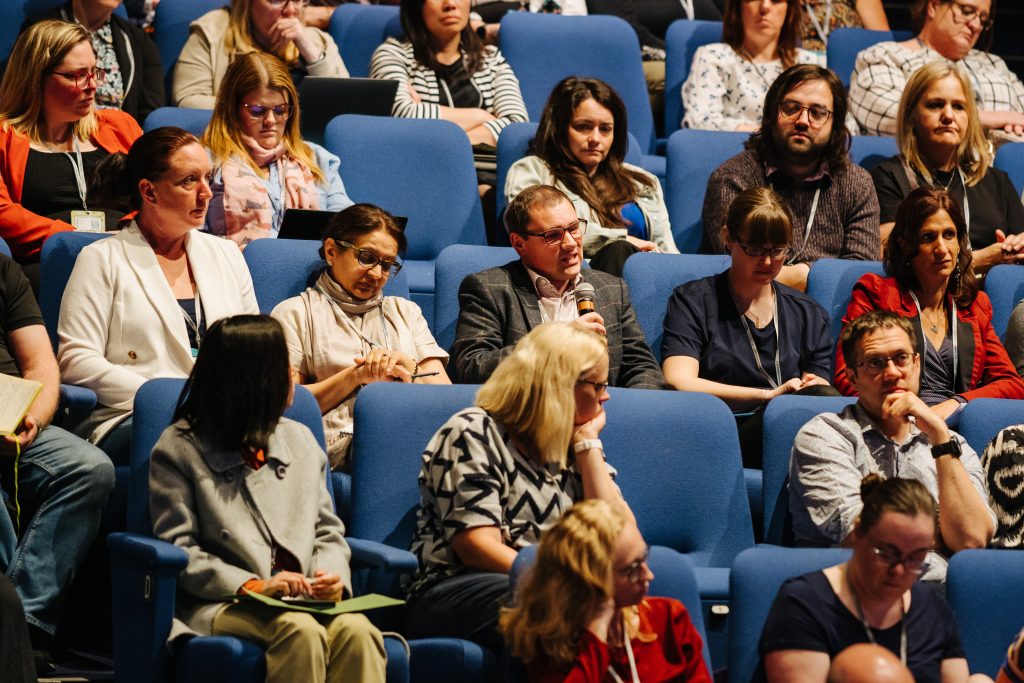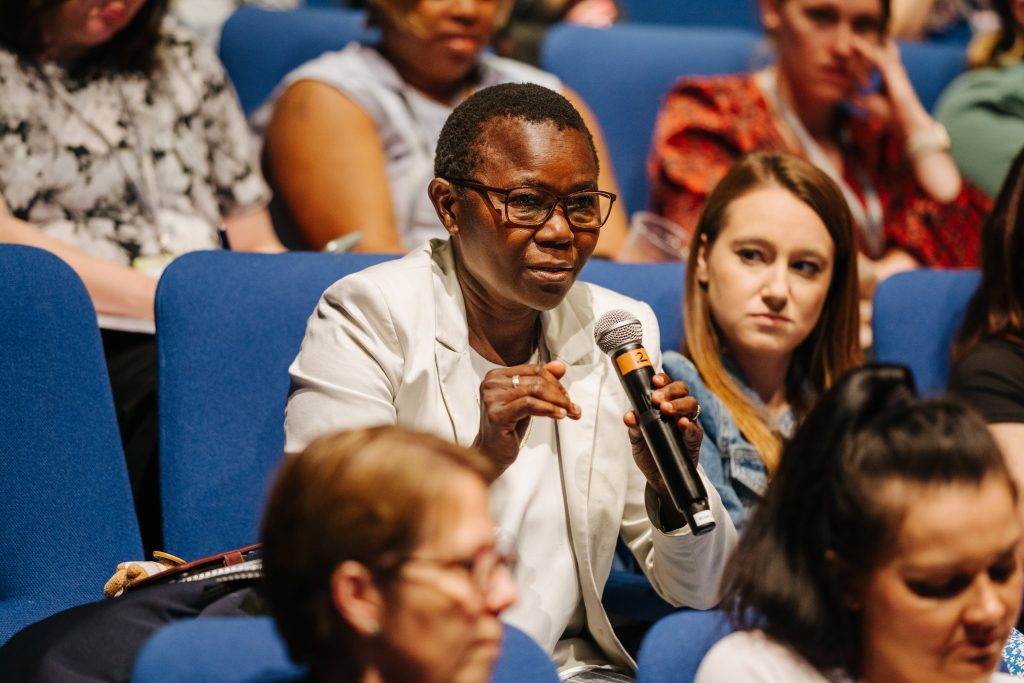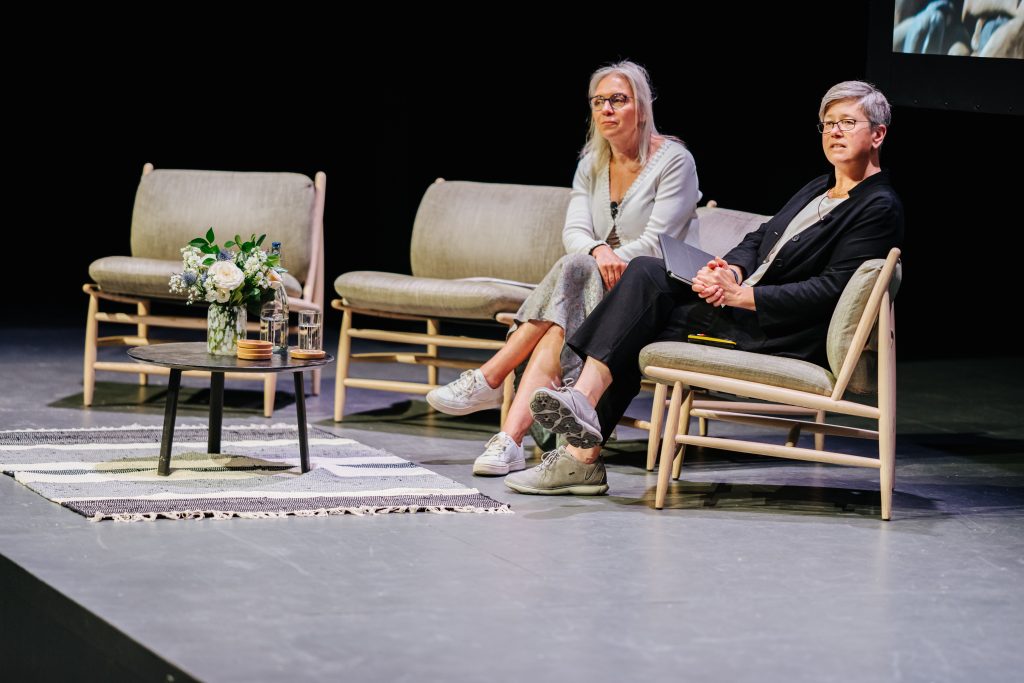
Vikki Goddard (she/her)
Independent HE Consultant and Managing Director, AHEP Consulting
Development Monthly | #27 January 2024 | HE Horizon: ‘Navigating the Future Landscape‘
I often hear colleagues discussing how we can ‘future-proof’ our organisations. This seems an intriguing question, for a number of reasons. Firstly, I’m not sure that we all mean the same thing when we talk about future-proofing. Secondly, the discussion might assume that we understand enough about the future to be able to ‘proof’ it, when its not always feasible.
As we’re talking about the future, an obvious place to go to get potential answers is ChatGPT. I admit to having been rather sceptical about this tool, despite rave reviews from colleagues and friends in other industries, but was convinced that it was worth giving a go by someone who shall remain nameless and who did convince me. So, I asked ChatGPT how it thought you should future-proof a University. In its customary 10-second manner, it gave me the following answers:
- Flexibility in Curriculum Design
- Embrace Technology
- Focus on Lifelong Learning
- Globalization and Cultural Competence
- Research and Innovation
- Adaptability in Admissions
- Entrepreneurship and Industry Collaboration
- Focus on Soft Skills
- Environmental Sustainability
- Community Engagement
- Agile Governance and Administration
- Financial Sustainability
So far so textbook, and although helpful, probably no surprises…
What this does not do is to really drill into how Higher Education sector organisations, and more specifically Professional Services operations within them, should consider how they are organised, and if this makes sense for the future. This year marks my thirtieth working in Higher Education, and I have seen more initiatives, projects and programmes in various Universities than I care to remember.
On one level there have been massive changes over that time period – the creation of Chief Operating Officers, significant professionalisation right across our services, marketing, communications and alumni and development organisations that just did not exist then, significant investment in supporting the student experience, and in IT and digital infrastructure and support. And yet … fundamentally, is the way that our professional services are organised much different from the University Administration that I joined in 1994? Not significantly I would argue.
Although we have many conversations about the need to develop new operating models, to break down silos and to look at reducing hierarchy, in reality are there many Universities that can be identified as having achieved this? We know that we tend to have duplication of functions in different structures in our Universities and the way we traditionally deal with this is to reorganise. Mainly this has been driven by moving to more standardised structures, particularly for the Academic support areas, and by removing more traditional forms of support for academics (few and far between nowadays are the Profs with their own PA).



But does any of this actually futureproof our professional services?
It seems to me that rather than focussing on structures and organisation (important though these are) a more fruitful approach would be to focus on ways in which we can change the way we do things to enable better professional services. We talk about this a lot in Universities, mainly linked to values and culture where we understand, in theory at least, the importance of our culture (or cultures) and how it impacts on how we do things.
Words like innovation, collaboration and resilience are commonplace, but are we really getting under the skin of these to change the way we do things? I am not sure that we are, and without these types of organisational development I believe the sector will struggle to attract, retain and support the people that it needs. Our organisational development teams tend to be very focussed on leadership and management development, coaching and mentoring rather than broader organisational change and development.
There is of course a critical place for this, but I suggest that we need a deeper embedding of broad organisational development, encapsulating these areas and others to really futureproof our sector. Some examples:
Let’s get rid of the silos and hierarchy:
Often talked about, rarely achieved. How do we engage with all the people we need to across the University to agree what’s required and how we achieve our objectives? Clue: it’s not done round a committee or working group table. This is a genuine case where leaders need to role model bringing people together and utilising skills, competencies and experience rather than job and grade to push through and find the best solutions. This requires sticking your head above the parapet, being brave and potentially having some difficult conversations
A new system will fix it:
We all know that doing more digitally is important, not least because our students tell us, and we know from our own experience as consumers of services that its possible and helpful in many instances (although not all, we can all empathise with poor chatbot experience) but waiting for the big improvement is not the panacea for all ills. Most change of this kind is evolutionary, and there is a lot that can be done to improve the delivery of processes at a local level supported by systems – but it remains the case that these need to be driven by people – and its usually those at the sharp end who can identify where the main changes need to be made. We just need to enable them to undertake the change.
We need more diversity of thought and action:
Voices have to be heard, and we need to encourage and support diversity of ideas. This comes from diversity of people, so finding ways to bring about a more inclusive and diverse approach is important. We know that people of colour, younger people and those with disabilities are under-represented in our workforce, especially at more senior levels (see note above about no hierarchies!) so we need to work on this, but also include our students more in our considerations of what we do and how we do it – it’s not like they are difficult to find (although they might be more difficult to engage – again, let’s do so their way not what would have worked 20 years ago).
Whilst this has an organisation-level requirement, it’s also about all of us engaging at every level – individual, team, department – to look up from the day-to-day (not always easy with the pressures on everyone) and to think about how we futureproof in a meaningful way. Real change tends to come from those for whom it will make a meaningful impact and help them in what they do. It also drives our professional and personal development. So, in setting your goals for the new year, why not consider what future-proofing might be required, and how you are going to enable yourself and your colleagues to achieve it?
Find out more about how AHEP’s Consulting service can help you future-proof your institutions and reach your strategic goals, get in touch at consulting@ahep.ac.uk
Join the discussion @The_AHEP #Develop or scroll to the bottom for comments
Check out other articles from Development Monthly
